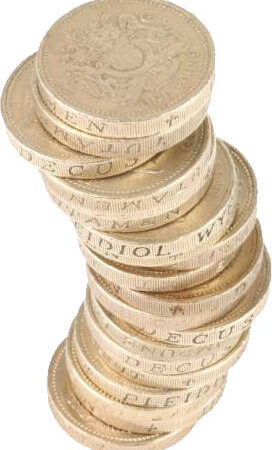Three half truths about high prices

 High prices! For everything! UK / USA / EU countries heading for recession! So scream the newspapers and most of the media. Yet there are 3 aspects of all of this paranoia that really frustrate me – even beyond the fact that it strikes me that the media is partly to blame for stoking fears of a downturn. Anyway, I digress. The 3 half-truths:
High prices! For everything! UK / USA / EU countries heading for recession! So scream the newspapers and most of the media. Yet there are 3 aspects of all of this paranoia that really frustrate me – even beyond the fact that it strikes me that the media is partly to blame for stoking fears of a downturn. Anyway, I digress. The 3 half-truths:
(1) Rise is oil prices is due to demand from India and China
So the argument goes those countries are growing strongly, and their demand for oil is equally rocketing up. As supply is relatively tight, so the price of oil per barrel rockets. According to this excellent table by Snowflake (hat tip: Paulie) 33.9% of the growth in the daily number of barrels oil is due to China and India, while the statistics also highlight a number of other additional interesting developments – how Europe (especially Germany) has managed to economise, while the USA, Saudi Arabia, Singapore and others have not. So while India and China are one cause, developed countries not reducing their dependence on oil is a further cause – so don’t just point the finger at 2 countries.
(2) Rise in food prices is due to demand for biofuels
Undoubtedly some of the rise in global food prices is due to some fields being turned over to the production of biofuels, especially in the USA. Some of the price increases are also due to the price of oil – see (1) above. But the issue that politicians and the media always fail to look at is what people are actually using the grain for that is harvested in the world. More and more of it – at a rate even faster than the increase in biofuels – is being used to feed animals, rather than to feed humans directly. Have a read of this by George Monbiot. So, as well as looking at biofuels, the world needs to urgently look at the amount of meat consumed and how the animals reared are fed. So become vegetarian, rather than ranting about biofuels.
(3) Everything is more expensive today than it was in the past
Seems everywhere people are having a gripe about decreasing spending power, in part as a result of the issues highlighted in (1) and (2) above. But is it true? Belgian research shows that it takes an average worker 34 minutes to earn enough money to buy 1kg of butter in April 2008, versus 1 hour and 2 minutes in 1983 and similar trends are shown for most products – even 40 litres of petrol takes an average worker less time to earn than it did in 1983. Have a read of the article in French here. So while things might not be as easy as they were 2 years ago, they are still far from hard in Europe.
So there you are folks. Don’t get down about all the downturn stuff, as it’s not as bad as you might think, and some of the ‘facts’ on which everyday argument is based are far from the complete picture.
The average worker in certain countries, however, has had to pay rather more for housing, and therefore has a lot less left over for butter. Meanwhile, April 2008 feels like a long time ago – certainly after today, with quarterly inflation in the UK running at an annualised rate of 8.2%
That aside, what an odd oil chart. Why would you do consumption growth since 1997 when trying to explain the price rises? The oil price was lower in 2002 than in 1997, so surely it’s the second five of those ten years that you want to look at?
Sorry – I mean’t conflate your first and second points – about the rise of China and India and changing dietary patterns.
What makes biofuels so glaring an issue is not so much the scale of the impact (compared to rising oil prices and increasing diversion of grains into livestock feeds, which probably have a bigger impact on food prices) but that this new demand for biofuels is 100% the result of government policies. It is not an ‘exogenous shock’ or the result of some countries having rapidly growing middle classes.
Interestingly, one could conflate your first and third points and come up with an argument which says it is China and – to a lesser extent – India that are the cause of the increased world livestock production. Which is fairly accurate. That’s not to say that China nor India are up to ‘western’ levels of meat consumption, but there are a lot of Indians and Chinese so even a very small change in average consumption patterns has an effect.
Monbiot is probably right to point the finger at beef. It’s very inefficient in terms of calorie conversion and water use, and also contributes to global warming via methane emissions. But it’s not beef that is seeing the big increase – it’s pork and chicken, and dairy.
As long as markets are allowed to work this out, there will be a reaction as meat products become more expensive – people will cut back on consumption. There is of course a broader cultural / lifestyle / ethical issue about how much meat we should all be consuming. But that’s a bigger challenge – and as Gordon Brown found out to his cost last week – people don’t much like getting lectures from politicians on what they should and shouldn’t be doing in the kitchen!
I dont know about (3). Maybe there is a significant part of Europeans for which – contrary to the general trend – groceries are not twice as affordable as 25 years ago and looking at average workers’ spending on butter therefore really only hides the problem? Does the study mention this possibility? (I dont understand francais very well 🙁
And also the debate about “rocketing” food prices hardly focuses on Europe, does it? I live in southern Africa currently and am curious whether the xenophobia and necklacings here lately have really not been caused by decreasing access to food.
Just to add some half-baked beliefs without the benefit of statistics:
Consumers in the open EU economies have benefited from falling prices of for instance clothes and electronics, whereas consumers in the protective (protectionist) member states have benefited much less.
The strong euro is a problem for European exporters, but the more competitive economies have managed fairly well, whereas the less competitive countries struggle. In spite of difficulties for certain domestic sectors like hauliers and fishermen, the strong euro has shielded the Eurozone from much of the oil and gas price rises (in US dollars).